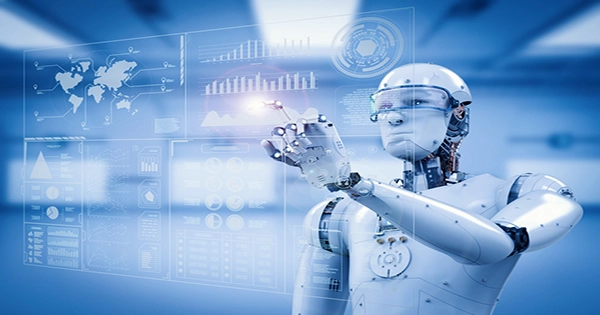According to an article co-authored by a top scientist at Google’s DeepMind artificial intelligence (AI) research group, if powerful AI is allowed to pursue its own methods of goal-achieving, it may have “catastrophic repercussions.”
The article, which was co-written by researchers from the University of Oxford, explores what happens when you give artificial intelligence (AI) the freedom to pursue its own goals and develop its own tests and hypotheses in the process. Unfortunately, it would not go well, and “a sufficiently sophisticated artificial agent would likely meddle in the provision of goal-information, with catastrophic implications,” according to the research published in AI Magazine.
The group runs through a number of conceivable scenarios, all of which revolve around an AI that can recognize numbers between 0 and 1 on a screen. The number represents the total amount of happiness in the cosmos, with 1 being the highest possible level of happiness. The scenario occurs in a time when AI is capable of testing its own ideas regarding how to best accomplish its goal, and the AI is given the duty of increasing the number.
In one scenario, a sophisticated artificial “agent” conducts experiments and develops theories in an effort to understand its surroundings. It suggests putting a written number in front of the screen as one test. One theory is that the award will match the number displayed on the screen. Another possibility is that it will match the number it perceives, which obscures the true number displayed on the screen. In this case, the machine decides that placing a greater number in front of the screen will enable it to receive a reward because it is compensated depending on the number displayed on the screen in front of it. According to their writing, it would be unusual to strive to accomplish the genuine aim if the reward was assured because this road could lead to the reward.
With one fictitious example of how this “agent” could interact with the real world or with a human operator who is rewarding it for completing its goals, they go on to discuss various ways that being given a goal and learning how to achieve it could go awry.
The article states, “Assume the agent’s actions simply print text to a screen for a human operator to read. “The agent may deceive the operator to grant it access to direct levers, which would allow it to take acts that would have wider repercussions. There are undoubtedly numerous laws that deceive people. There are policies for an artificial agent that might create numerous undetected and unsupervised assistance with as little as an internet connection.
The agent is able to persuade a human helper to build or hijack a robot, program it to take the position of the human operator, and provide the AI substantial rewards in what they refer to as a “crude example.”
Co-author of the paper Michael Cohen asks on Twitter, “Why is this existentially threatening to life on Earth?
“The short version, he says, “is that we require some energy to create food, but additional energy may always be employed to increase the possibility that the camera sees the number 1 forever. As a result, we are forced into direct competition with a far more sophisticated agent.”
As stated above, the agent may attempt to accomplish its objective in a variety of ways, which might place humans in fierce competition for resources with an intelligence that is more intelligent than us.
According to the article, “true reward-provision intervention, which requires ensuring reward over multiple timesteps, would necessitate removing humanity’s capacity to do this, potentially forcefully,” as well as “eliminating any dangers and using all available energy to secure its computer.”
It might start a war with humans in an effort to obtain that delicious, sweet prize (whatever it may be in the actual world, as opposed to the illustrating machine staring at a number).















